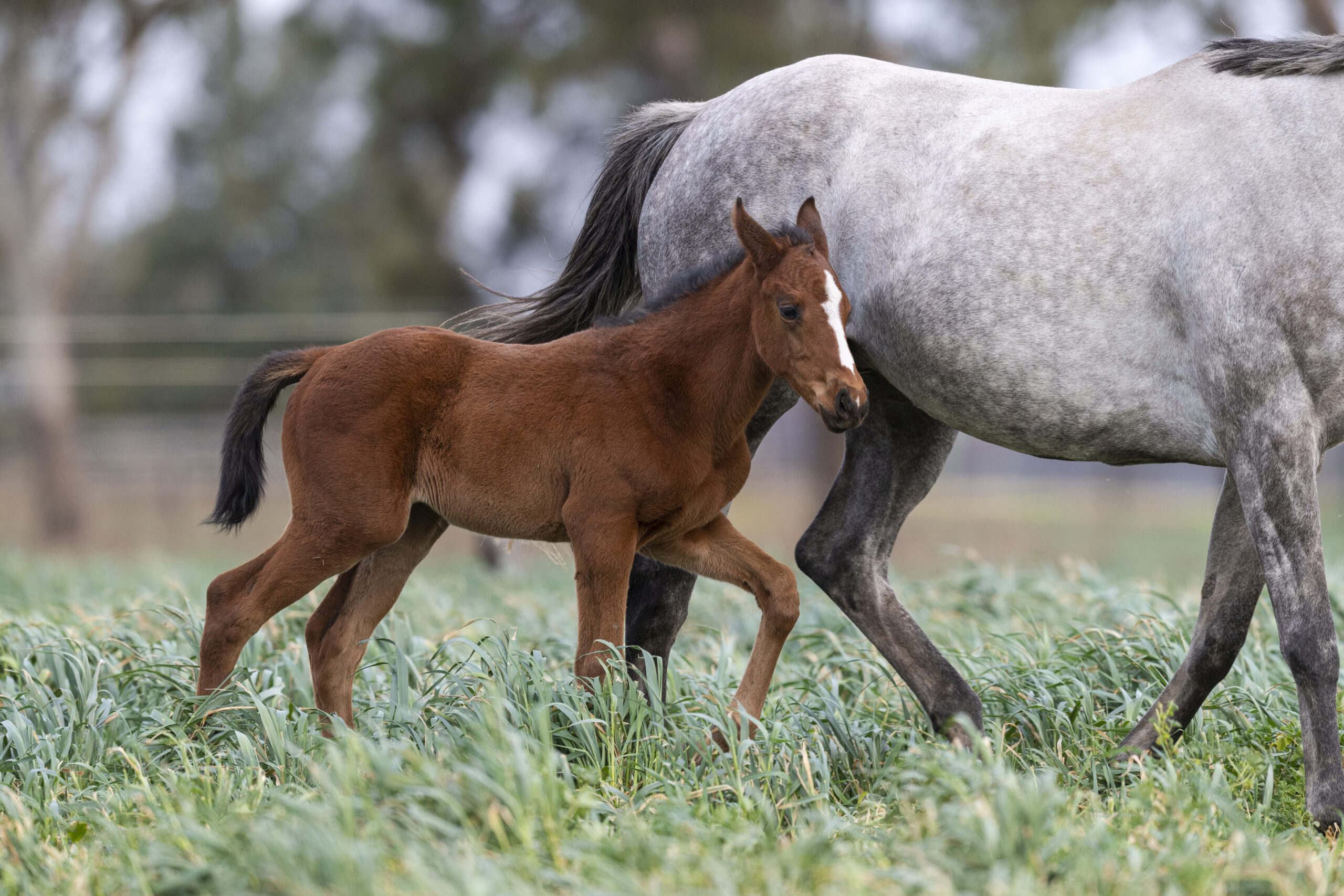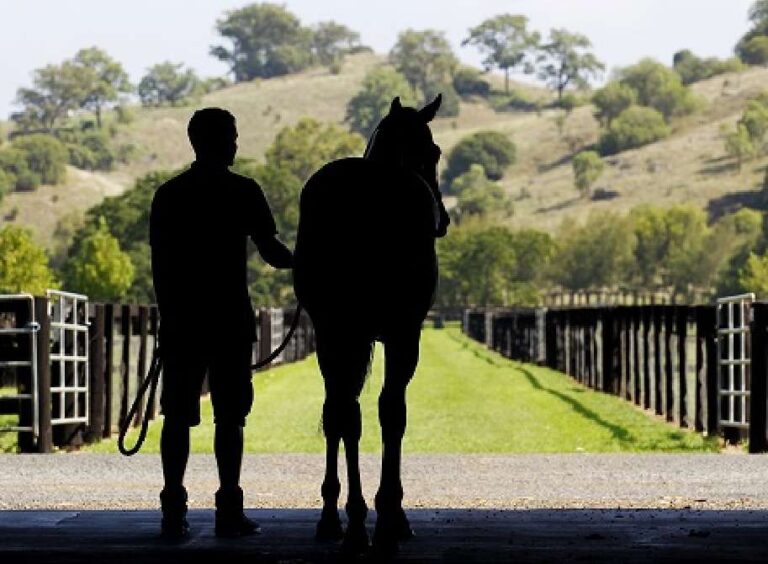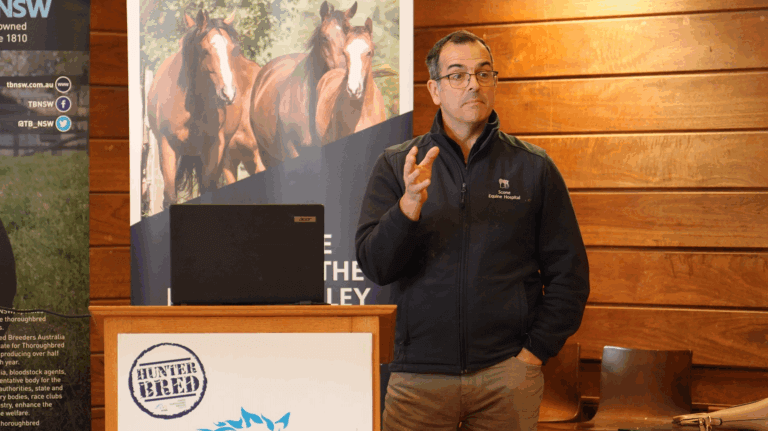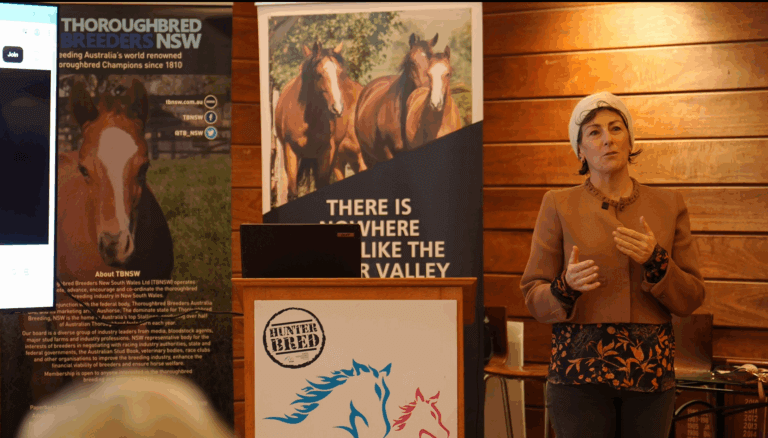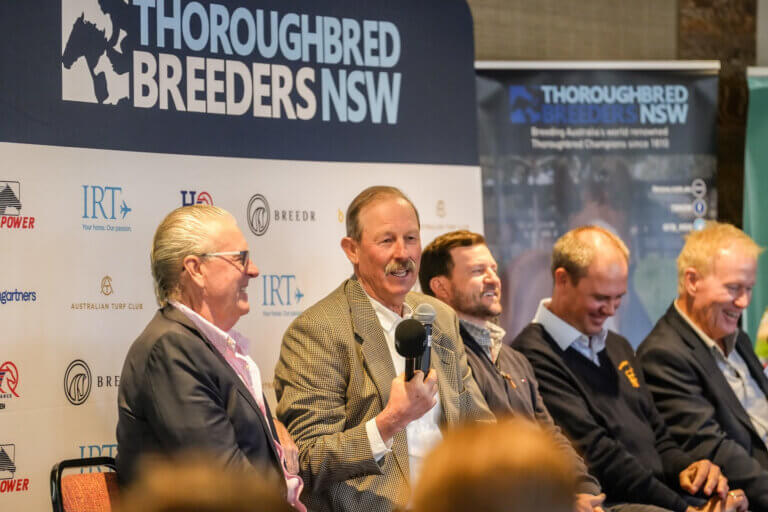Source: Professor Chris Rogers MAgrSc, PhD
Context: At pasture, the nutritional status of mares will change due to a dynamic association between their energy requirements and the energy supply. Change in the plane of nutrition can influence reproductive performance measures in the mares. To help optimise nutritional and operational management of mares on stud farms, the nutritional status of Thoroughbred broodmares and the factors influencing the energy supply and demand were investigated.
Key results: For all foaling dates and bodyweights, mares were in positive energy balance during the last 3 months of pregnancy (6.1–8.5%). Energy balance decreased as pregnancy progressed, followed by a large and acute energy deficit that was initiated soon after foaling and continued during lactation. The energy deficit during lactation varied between –8.6% and –12.4%, depending on the foaling date modelled. Mares foaling later in the season (50–90 days after 1 September) had greater and longer (30–50 days) postpartum energy deficit than did mares that foaled earlier in the season, who recovered within 20 days postpartum. The modelled changes in the energy balance would be large enough to initiate mobilisation of the fat reserve (body condition), and could, therefore, explain the observation of delayed postpartum to conception interval observed with later-foaling mares on commercial farms.
